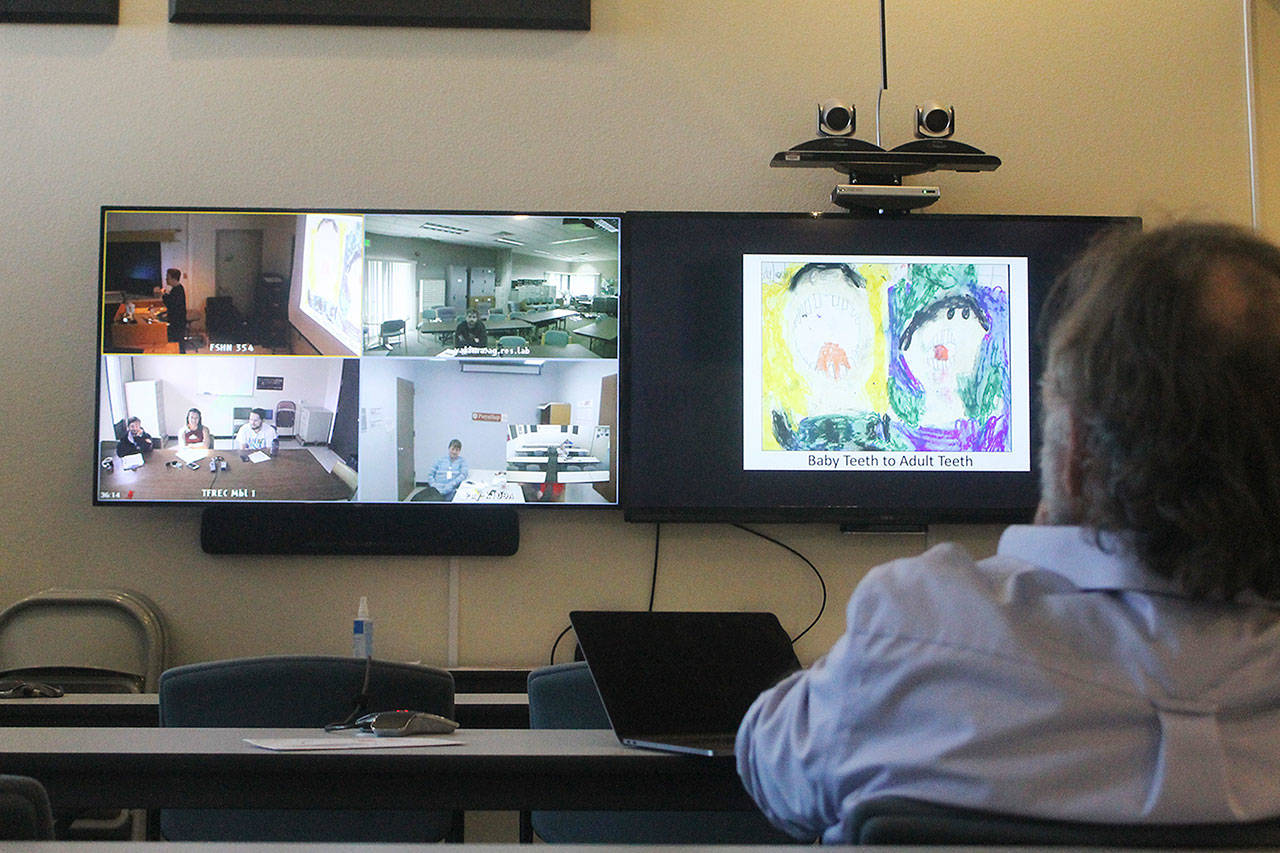The burden of having to travel off-island for college courses has the power to derail an academic career.
Timothy Lawrence, director of Washington State University Extension Island County, remembered this to be true in the case of one Oak Harbor woman who was enrolled at the university’s North Puget Sound campus in Everett. Lawrence said she had to wake up at 3:30 a.m. to reach the campus in time for her classes, but couldn’t keep it up for long due to the strenuous commute.
A solution may lie in interactive distance technology, which will be a central component of the extension office’s new “higher education center” set to open Oct. 9. The center, located at the extension’s new office on 404 North Main Street in Coupeville, features an “Academic Media Services” videoconference room that will allow students to take classes at the Everett campus without having to leave the island.
A two-way video streaming and voice monitoring system gives students the ability to see and interact with their professors and fellow students, and vice versa.
“Students are able to interact with other team members within the classes, whether they’re here, in Everett or in Bellingham,” Lawrence said.
It’s a unique means of education, Lawrence said; the center is being used as a testing ground for delivering higher education programming to rural communities. The endeavor includes a partnership with the Everett campus, Skagit Valley College and the Washington State University College of Nursing in Spokane.
“I’m willing to give it time to evolve,” Lawrence said. “…It’s something that I personally think is important in making more educational opportunities available.”
He added that WSU Extension will continue to offer the Island County Master Gardener Program and 4-H.
The burden of off-island commuting has been the premise of conversations Lawrence has had over the years with Island County Commissioner Helen Price Johnson, who also contributed to making the center become a reality. Videoconferencing will also make it easier for students to complete courses by making them closer to home.
Price Johnson, who has been part of an advisory committee tasked with providing better access to higher education in this region, said the center opens up a plethora of opportunities for local students.
“Having a local portal to the WSU North Puget Sound campus will provide local students of all ages access to the college courses without the time and hassles of commuting, or the high costs of urban life,” Price Johnson wrote in an email. “It’s great.”
Students can sign up to use the center’s videoconference room for classes, including aeronautical studies, mechanical studies, communications and nursing. A Polycom videoconferencing system equipped with two cameras and two LED screens act as the eyes and ears of the classroom. The systems allows students to interact with their professor and classmates through motion and voice and activated software, meaning they can ask questions and expect an immediate response on the other end.
One of the LED screens shows the professor speaking, along with students from other satellite campuses, one as far away as Wenatchee. The second screen displays a slide presentation document to track the subjects being discussed. During a weekly seminar on Monday afternoon, students from three satellite campuses took a class focusing on parasites on and in humans. The class, called “You are a meat stick and that’s OK,” was taught by a professor in a classroom from the university’s main campus in Pullman.
Lawrence said students will still need to travel to the Everett campus on occasion for labs or when its facilities are needed.
“Say you’re into aeronautical engineering and they have a lab outfitted by Boeing,” Lawrence said. “You can take the lecture portion here and come here for two days, and only go to Everett for one day. It might make it easier for people to consider this is an option.”
Call Lawrence at 360-679-7329 or email him at timothy.lawrence@wsu.edu for details.



